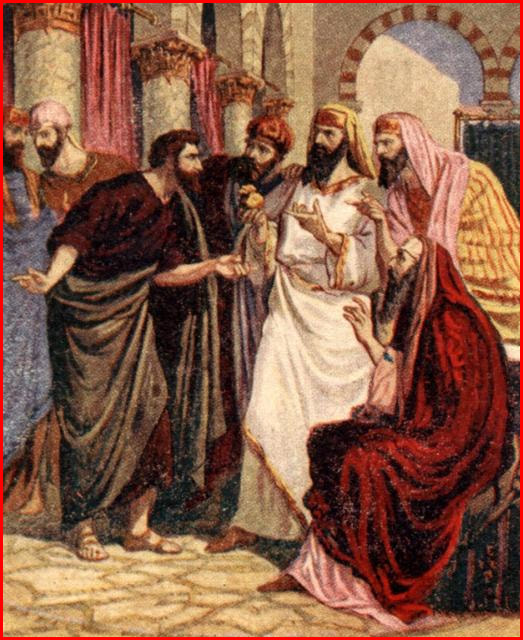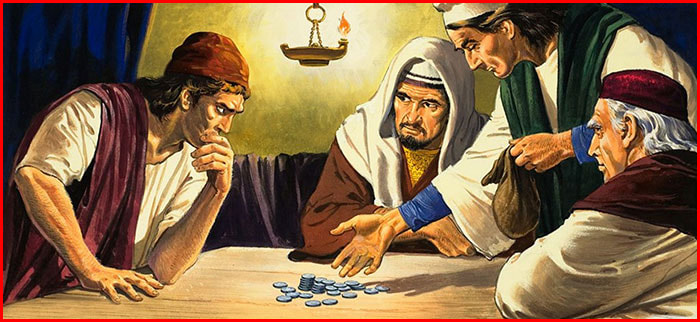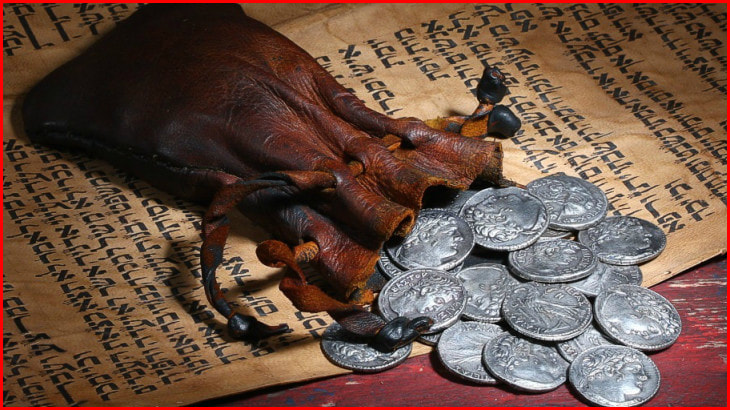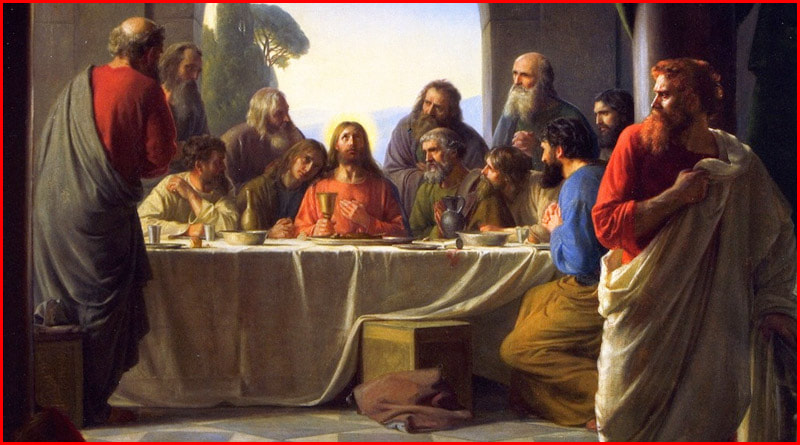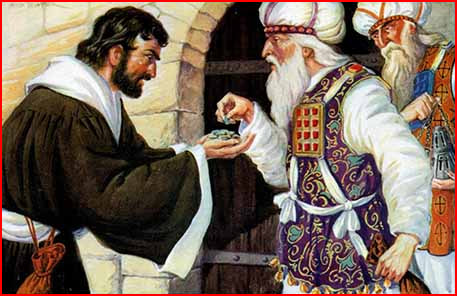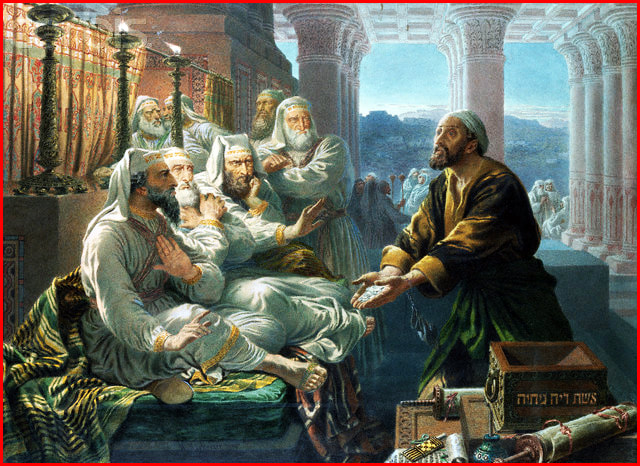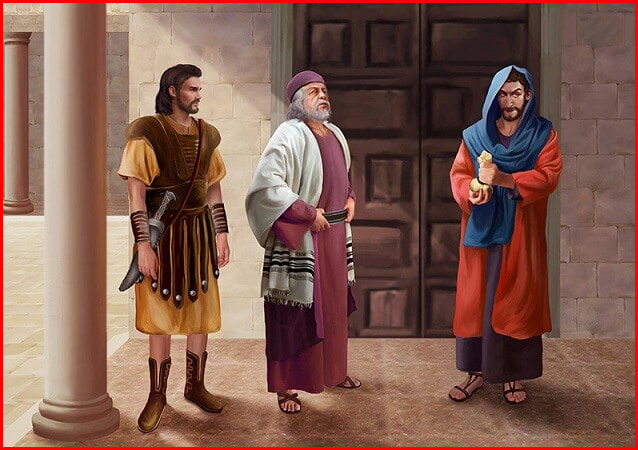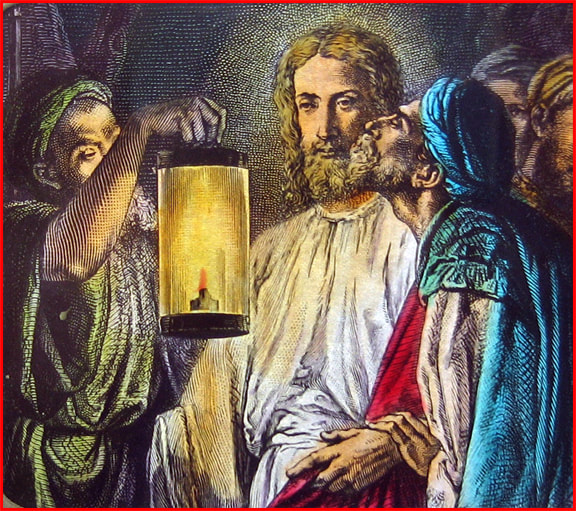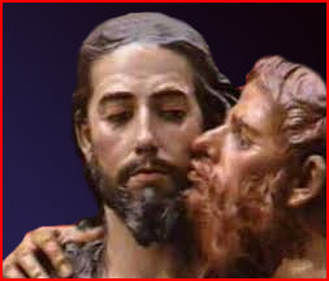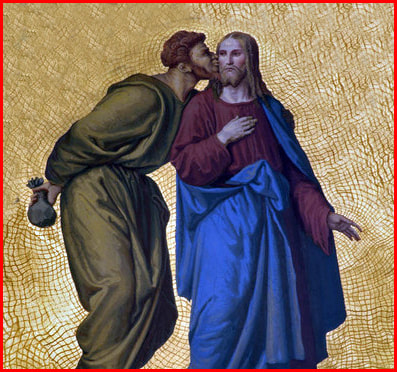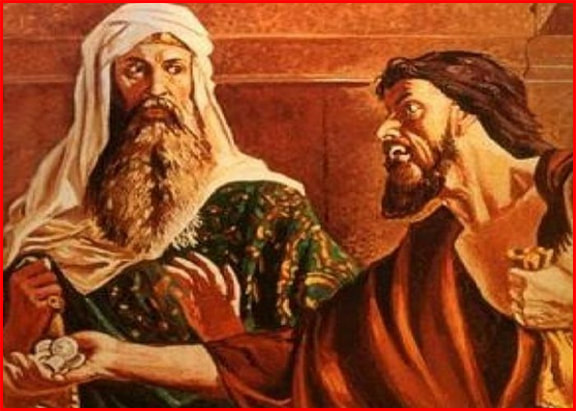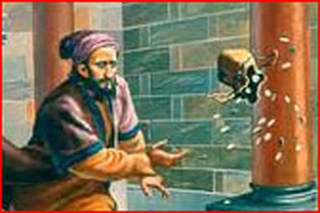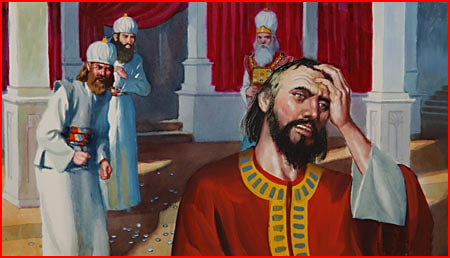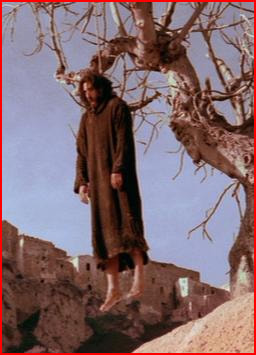| Devotion to Our Lady |
|
- Homepage
-
Daily Thoughts
- 2023 October Daily Thoughts
- Daily Thoughts Lent 2020
- Daily Thoughts for Advent 2019
- Daily Thoughts for October 2019
- Daily Thoughts for September 2019
- Daily Thoughts for August 2019
- Daily Thoughts for July
- Daily Thoughts for June
- Daily Thoughts for Easter 2019
- Daily Thoughts for Lent 2019
- Daily Thoughts for Christmas
- Daily Thoughts Easter 2022
- Sacred Heart
- Holy Ghost
-
Spiritual Life
- Holy Mass Explained
- First Friday Devotions
- First Saturday Devotions
- The Mercy of God
- Vocations
- The Path Everyone Must Walk >
- Gift of Failure
- Halloween or Hell-O-Ween?
- Ignatian Spiritual Exercises >
- Meditation is Soul-Saving
- Spiritual Communion
- Miraculous Medal
- Enrollment in Miraculous Medal
- St. Benedict Medal
- Holy Water
- Advice on Prayer
- Your Daily Mary
-
Prayers
- September Devotions
- Seven Sorrows of Our Lady
-
Novenas
>
- NV-Help of Christians
- NV-Nativity of Our Lady
- NV-Seven Sorrows
- NV- Sorrowful Heart
- NV-Pope St Pius X
- NV-La Salette
- NV-St Michael Archangel
- NV-Immaculate Heart
- NV-Assumption
- NV-Novena for Fathers
- NV-Novena for Your Mother
- NV-St Raphael Archangel
- NV-Souls in Purgatory
- NV-All Saints Day
- NV-Christ the King
- NV-Divine Motherhood
- NV-Guardian Angels
- NV-Rosary
- NV-Mirac Med
- NV- Imm Conc
- NV - Guadalupe
- NV - Nativity of Jesus
- NV-Epiphany
- NV-OL Good Success
- NV-Lourdes
- NV-St Patrick
- NV-St Joseph
- NV-Annunciation
- NV-St Louis de Montfort
- NV-OL Good Counsel
- NV-Last Supper
- NV-Passion
- NV-Pentecost
- NV-Ascension
- NV-Sacred Heart
- NV-Sacred Heart & Perpetual Help
- NV-Corpus Christi
- NV-OL of Perpetual Help
- NV-Queenship BVM
- NV-OL of Mount Carmel
- NV-St Mary Magdalen
- NV- Im Hrt
- August Devotions to IHM
- Immaculate Heart of Mary
- Litany of Dependence
- Prayers to St Mary Magdalen
- Prayers in Times of Sickness Disease & Danger
- Holy Souls in Purgatory
- Meditations on the Litany of Our Lady
- Special Feast Days
- Prayers to Mary (Mon-Sun)
- Litanies to Our Lady >
- Various & Special Needs
- Our Lady of the Rosary
- Our Lady of Mt. Carmel
- Our Lady of Perpetual Help
- Our Lady of Guadalupe
- Other titles of Our Lady
-
Rosary
- Downloads
- Consecration
- Easter Season
-
Holy Week
- Last Seven Words of Jesus >
- Characters of Passion >
- The Last Days of Christ
- Before Palm Sunday
- Palm Sunday
- Monday in Holy Week
- Tuesday in Holy Week
- Wednesday in Holy Week
- Holy Thursday (Last Supper)
- Holy Thursday (Agony & Arrest)
- Night Vigil with Christ
- Good Friday (Pilate & Herod)
- Good Friday (Way of Cross & Crucifixion)
- Saturday in Holy Week
-
Lent
- Ideas for Lent
- Daily Lenten Planner
- Daily Lenten Liturgy
- From Cold to Hot
- Lent with Aquinas
- Lent with Dom Gueranger
- Virtues for Lent
- History of Penance
- How Expensive is Sin?
- Confession of Sins
- Letter to Friends of the Cross
- Sermons for Lent
- Stations of the Cross >
- Lenten Prayers
- 7 Penitential Psalms
- Lenten Psalms SUN
- Lenten Psalms MON
- Lenten Psalms TUE
- Lenten Psalms WED
- Lenten Psalms THU
- Lenten Psalms FRI
- Lenten Psalms SAT
- Lenten Laughs
- Septuagesima
-
Christmas
- Epiphany Explained
- Suggestions for Christmas
- Food For Thought
- Christmas with Aquinas
- Christmas with Dom Gueranger
- Christmas Prayers
- Candles & Candlemas
- Christmas Sermons
- Christmas Prayers SUN
- Christmas Prayers MON
- Christmas Prayers TUE
- Christmas Prayers WED
- Christmas Prayers THU
- Christmas Prayers FRI
- Christmas Prayers SAT
- Twelve Days of Christmas >
-
Advent Journey
- Purgatory
- Christ the King
- Legion of Mary
- Scapular
-
Saints
-
Martyrs for the Faith
>
- Your Daily Martyr >
- All 365 Days of Martyrs
- Cristeros
- St Valentine & Valentine's Day
- Martyrs--Thomas Becket
- Martyrs--John the Apostle
- Holy Machabees
- Age of Martyrdom
- Carmelites of Compiegne
- Martyrs--Peter & Paul
- Martyrs--John the Baptist
- Martyrs--Andrew
- Martyrs--James the Great
- Martyrs--North American
- Martyrs--Seven Holy Sleepers
- Martyrs--Afra
- School of Martyrdom
- Martyrs--Christina
- Desert Saints >
- Saints for Sinners >
- Saints of Mary >
- History of All Saints Day
-
Martyrs for the Faith
>
- Precious Blood
- Synod 2023
-
Catechism
- Catechism Lesson 1
- Catechism Lesson 2
- Catechism Lesson 3
- Catechism Lesson 4
- Catechism Lesson 5
- Catechism Lesson 6
- Catechism Lesson 7
- Catechism Lesson 8
- Catechism Lesson 9
- Catechism Lesson 10
- Catechism Lesson 11
- Catechism Lesson 12
- Catechism Lesson 13
- Catechism Lesson 14
- Catechism Lesson 15
- Catechism Lesson 16
- Catechism Lesson 17
- Catechism Lesson 18
- Catechism Lesson 19
- Catechism Lesson 20
- Catechism Lesson 21
- Catechism Lesson 22
- Bible Study
-
Calendar
- Miracles
- Apparitions
- Shrines
- Prophecies
- Angels Homepage
- Hell
-
Church Crisis
- Conspiracy Theories
- Amazon Synod 2019 >
- Liberalism & Modernism
- Modernism--Encyclical Pascendi
- Modernism & Children
- Modernism--Documents
- The Francis Pages
- Church Enemies on Francis
- Francis Quotes
- Amoris Laetitia Critique
- Danger of Ignorance (Pius X)
- Restore all In Christ (Pius X)
- Catholic Action (Pius X)
- Another TITANIC Disaster?
- The "Errors of Russia"
- CRISIS PRAYERS
- Election Novena 2024
- The Anger Room
- War Zone
- Life of Mary
- Spiritual Gym
- Stupidity
- Coronavirus and Catholicism
- History & Facts
- Books
- Catholic Family
- Children
- Daily Quiz
-
Novena Church & Pope
- Day 01 Church-Pope Novena
- Day 02 Church-Pope Novena
- Day 03 Church-Pope Novena
- Day 04 Church-Pope Novena
- Day 05 Church-Pope Novena
- Day 06 Church-Pope Novena
- Day 07 Church-Pope Novena
- Day 08 Church-Pope Novena
- Day 09 Church-Pope Novena
- Day 10 Church-Pope Novena
- Day 11 Church-Pope Novena
- Day 12 Church-Pope Novena
- Day 13 Church-Pope Novena
- Day 14 Church-Pope Novena
- Day 15 Church-Pope Novena
- Day 16 Church-Pope Novena
- Day 17 Church-Pope Novena
- Day 18 Church-Pope Novena
- Day 19 Church-Pope Novena
- Day 20 Church-Pope Novena
- Day 21 Church-Pope Novena
- Day 22 Church-Pope Novena
- Day 23 Church-Pope Novena
- Day 24 Church-Pope Novena
- Day 25 Church-Pope Novena
- Day 26 Church-Pope Novena
- Day 27 Church-Pope Novena
- Day 28 Church-Pope Novena
- Day 29 Church-Pope Novena
- Day 30 Church-Pope Novena
- Day 31 Church-Pope Novena
- Day 32 Church-Pope Novena
- Day 33 Church-Pope Novena
- Day 34 Church-Pope Novena
- Day 35 Church-Pope Novena
- Day 36 Church-Pope Novena
- Day 37 Church-Pope Novena
- Day 38 Church-Pope Novena
- Day 39 Church-Pope Novena
- Day 40 Church-Pope Novena
- Day 41 Church-Pope Novena
- Day 42 Church-Pope Novena
- Day 43 Church-Pope Novena
- Day 44 Church-Pope Novena
- Day 45 Church-Pope Novena
- Day 46 Church-Pope Novena
- Day 47 Church-Pope Novena
- Day 48 Church-Pope Novena
- Day 49 Church-Pope Novena
- Day 50 Church-Pope Novena
- Day 51 Church-Pope Novena
- Day 52 Church-Pope Novena
- Day 53 Church-Pope Novena
- Day 54 Church-Pope Novena
- Penance Novena
- Daily WeAtheR Forecast
The Greatest and Most Important Week in the Church's Liturgical Year
CLICK ON ANY HOLY WEEK LINK BELOW
Also lots of LENTEN & HOLY WEEK DOWNLOADS on the downloads page (click here)
LITURGICAL PRAYERS FOR EACH DAY OF THE WEEK DURING LENT
| Sundays of Lent | Mondays of Lent | Tuesdays of Lent | Wednesdays of Lent | Thursdays of Lent | Fridays of Lent | Saturdays of Lent |
HOLY WEEK PAGES
| Daily Thoughts | Holy Week Main Page | Before Palm Sunday | Palm Sunday | Last Days of Christ |
| Holy Thursday Last Supper Novena | Good Friday Passion Novena |
| Monday of Holy Week | Tuesday of Holy Week | Wednesday of Holy Week | Holy Thursday (Last Supper) | Holy Thursday (Agony & Arrest) |
| Night Vigil With Christ | Good Friday (Pilate & Herod) | Good Friday (Way of Cross & Crucifixion) | Holy Saturday |
THE CHIEF CHARACTERS OF THE PASSION
| Characters of the Passion Mainpage | The Sanhedrin | Pharisees | Scribes | Saducees | Jewish Crowd | Roman Rulers |
| Judas | Annas & Caiphas | Pontius Pilate | Herod | Barabbas | Dismas the Good Thief | St. Peter | St. John | Mary Magdalen |
THE FOURTEEN STATIONS OF THE CROSS
| Introduction to the Stations of the Cross | Short Version of the Stations of the Cross (all 14 on one page) | 1st Station | 2nd Station | 3rd Station |
| 4th Station | 5th Station | 6th Station | 7th Station | 8th Station | 9th Station | 10th Station | 11th Station | 12th Station | 13th Station | 14th Station |
THE LAST SEVEN WORDS OF JESUS FROM THE CROSS
| Seven Last Words on the Cross (Introduction) | The 1st Word on the Cross | The 2nd Word on the Cross | The 3rd Word on the Cross |
| The 4th Word on the Cross | The 5th Word on the Cross | The 6th Word on the Cross | The 7th Word on the Cross |
PRAYERS AND DEVOTIONS TO THE SEVEN SORROWS OF OUR LADY
| Seven Sorrows Meditations | Short Prayers & Short Seven Sorrows Rosary | Longer Seven Sorrows Rosary |
| 1st Sorrow of Our Lady | 2nd Sorrow of Our Lady | 3rd Sorrow of Our Lady | 4th Sorrow of Our Lady |
| 5th Sorrow of Our Lady | 6th Sorrow of Our Lady | 7th Sorrow of Our Lady |
| Novena #1 to the Sorrowful Heart of Mary | Novena #2 to the Sorrowful Heart of Mary |
LENTEN PAGES
| ASH WEDNESDAY COUNTDOWN | LENT (MAIN PAGE) | DAILY THOUGHTS | DAILY LENTEN LITURGY | DAILY LENTEN PLANNER |
| LENTEN PRAYERS | THE 7 PENITENTIAL PSALMS | IDEAS FOR PENANCE | LENT WITH AQUINAS | LENT WITH DOM GUERANGER |
| HISTORY OF PENANCE | PENANCES OF THE SAINTS | HOW EXPENSIVE IS SIN? | CONFESSION OF SINS | ARE FEW SOULS SAVED? |
| VIRTUES FOR LENT | FROM COLD TO HOT | LENTEN LAUGHS | SERMONS FOR LENT | LETTER TO FRIENDS OF THE CROSS |
| STATIONS OF THE CROSS (INDIVIDUALLY) | ALL 14 STATIONS OF THE CROSS |
| THE LAST DAYS OF CHRIST | SPECIAL HOLY WEEK PAGES |
CLICK ON ANY HOLY WEEK LINK BELOW
Also lots of LENTEN & HOLY WEEK DOWNLOADS on the downloads page (click here)
LITURGICAL PRAYERS FOR EACH DAY OF THE WEEK DURING LENT
| Sundays of Lent | Mondays of Lent | Tuesdays of Lent | Wednesdays of Lent | Thursdays of Lent | Fridays of Lent | Saturdays of Lent |
HOLY WEEK PAGES
| Daily Thoughts | Holy Week Main Page | Before Palm Sunday | Palm Sunday | Last Days of Christ |
| Holy Thursday Last Supper Novena | Good Friday Passion Novena |
| Monday of Holy Week | Tuesday of Holy Week | Wednesday of Holy Week | Holy Thursday (Last Supper) | Holy Thursday (Agony & Arrest) |
| Night Vigil With Christ | Good Friday (Pilate & Herod) | Good Friday (Way of Cross & Crucifixion) | Holy Saturday |
THE CHIEF CHARACTERS OF THE PASSION
| Characters of the Passion Mainpage | The Sanhedrin | Pharisees | Scribes | Saducees | Jewish Crowd | Roman Rulers |
| Judas | Annas & Caiphas | Pontius Pilate | Herod | Barabbas | Dismas the Good Thief | St. Peter | St. John | Mary Magdalen |
THE FOURTEEN STATIONS OF THE CROSS
| Introduction to the Stations of the Cross | Short Version of the Stations of the Cross (all 14 on one page) | 1st Station | 2nd Station | 3rd Station |
| 4th Station | 5th Station | 6th Station | 7th Station | 8th Station | 9th Station | 10th Station | 11th Station | 12th Station | 13th Station | 14th Station |
THE LAST SEVEN WORDS OF JESUS FROM THE CROSS
| Seven Last Words on the Cross (Introduction) | The 1st Word on the Cross | The 2nd Word on the Cross | The 3rd Word on the Cross |
| The 4th Word on the Cross | The 5th Word on the Cross | The 6th Word on the Cross | The 7th Word on the Cross |
PRAYERS AND DEVOTIONS TO THE SEVEN SORROWS OF OUR LADY
| Seven Sorrows Meditations | Short Prayers & Short Seven Sorrows Rosary | Longer Seven Sorrows Rosary |
| 1st Sorrow of Our Lady | 2nd Sorrow of Our Lady | 3rd Sorrow of Our Lady | 4th Sorrow of Our Lady |
| 5th Sorrow of Our Lady | 6th Sorrow of Our Lady | 7th Sorrow of Our Lady |
| Novena #1 to the Sorrowful Heart of Mary | Novena #2 to the Sorrowful Heart of Mary |
LENTEN PAGES
| ASH WEDNESDAY COUNTDOWN | LENT (MAIN PAGE) | DAILY THOUGHTS | DAILY LENTEN LITURGY | DAILY LENTEN PLANNER |
| LENTEN PRAYERS | THE 7 PENITENTIAL PSALMS | IDEAS FOR PENANCE | LENT WITH AQUINAS | LENT WITH DOM GUERANGER |
| HISTORY OF PENANCE | PENANCES OF THE SAINTS | HOW EXPENSIVE IS SIN? | CONFESSION OF SINS | ARE FEW SOULS SAVED? |
| VIRTUES FOR LENT | FROM COLD TO HOT | LENTEN LAUGHS | SERMONS FOR LENT | LETTER TO FRIENDS OF THE CROSS |
| STATIONS OF THE CROSS (INDIVIDUALLY) | ALL 14 STATIONS OF THE CROSS |
| THE LAST DAYS OF CHRIST | SPECIAL HOLY WEEK PAGES |
JUDAS ISCARIOT
This article is currently being written. Sections will be posted as they are completed. Please check back later.
This article is currently being written. Sections will be posted as they are completed. Please check back later.
|
The expression “fallen away” or “lapsed” refers to those who, at one time blessed with grace and intimacy with the Divine, later abandon it. Our Lord referred to them in the parable of the Sower: “They have no root; they last only for a time. Then when tribulation or persecution comes because of the word, they quickly fall away” (Mark 4:17).
No one yet has ever left the Body of Christ or His Church for a reason, but many have left it for a thing. The thing may differ: It may be pride, wealth, flesh, or the thousand-and-one substitutes for God This truth is seen by a study of Judas, the one man in the Gospels who left Our Lord for a thing, and of whom Our Lord said: “It would be better for that man if he had never been born” (Matthew 26:24). One day a babe was born at Kerioth. Friends and relatives came with gifts, because he was a child of promise. Not so far away another Babe was born in the village of Bethlehem. Because He, too, was a child of promise, friends came with gifts of gold, frankincense, and myrrh. Both babes grew in age, and one day the man of Bethlehem met the man of Kerioth and Our Lord chose Judas as His Apostle. He was the only Judean among the Apostles; and since the Judeans were more skilled in administration than the Galileans, Judas was given the apostolic purse. Probably he was naturally best fitted for the task. To use a person for what he is naturally fitted is to keep him—if he can be kept—from apostasy and alienation and dissatisfaction. But at the same time, life’s temptations come often from that for which we have the greatest aptitude. However, there must be first an inward failure, before there can be an outward one. Judas was avaricious. Avarice is a pernicious sin, for when other vices grow old, avarice is still young. The covetousness of Judas revealed itself particularly in Simon’s house when an uninvited guest, a sinful woman, broke in at dinner and poured ointment over the feet of Our Lord and then wiped it away with her hair. Judas was at dinner that day. Judas knew how near the Lord’s betrayal was. Mary, that woman, knew how near His death was. Putting on the mask of charity, Judas simulated anger that such precious ointment should be wasted: “‘Why was not this ointment sold for three hundred pence, and given to the poor?’ Now he said this, not because he cared for the poor; but because he was a thief and held the money bag and used to steal the contributions.” (John 12:5-6). Our Lord did not affront Judas, who affronted Him. There is something inexpressibly sad and yet so patient, gentle, and tender in the words of Our Lord: “Leave her alone” (John 12:7). There will always be souls like Judas who are scandalized at the wealth offered to Christ in His Church. If a man can give jewels to the woman he loves without scandal, why cannot the soul pour out its abundance to the God it loves in tribute of affection? Our Lord praised the woman, saying she had anointed Him for His burial. Judas was shocked! So He was going to die! Later, on Wednesday of Holy Week, Our Lord told the Apostles and Judas: “You know that in two days time it will be Passover, and the Son of Man will be handed over to be crucified” (Matthew 26:2). Christ would be crucified. That was certain. In the general cataclysm Judas must rescue something to comfort his avaricious spirit. “Then one of the Twelve, who was called Judas Iscariot, went to the chief priests and said, `What are you willing to give me if I hand Him over to you?’ They paid him thirty pieces of silver” (Matthew 26:14-15). The next evening, on the occasion of Our Lord’s Last Supper, the Savior again spoke about His betrayal: “One of you is about to betray Me!” (Matthew 26:21). The disciples looked at one another saying: “Is it I, Lord?” “Is it I?” No conscience is pure in the sight of God; no one can be sure of his innocence. Judas then asked: “Is it I, Rabbi?” The Lord answered: “Thou hast said it.” And Judas went out and “it was night.” It is always night when one turns his back on God. A few hours later Judas led a band of brigands and soldiers down the hill of Jerusalem. Though there was a full moon that night, the soldiers did not know whom they were to apprehend, so they asked Judas for a sign. Turning to them, he said: “The Man I shall kiss is the one; arrest Him” (Matthew 26:48). Crossing over the brook of Kedron and into the Garden, Judas threw his arms around the neck of Our Lord and blistered His lips with a kiss. One word came back: “Friend.” Then the question: “Are you betraying the Son of Man with a kiss?” (Luke 22:48). It was the last time that Jesus spoke to Judas. Only Judas knew where to find Our Lord after dark. Soldiers did not know. Christ in His Church is delivered into the hands of the enemy from within. It is the bad Christians who betray. The greatest harm to the cause of Christ is not done by enemies, but by those who have been cradled and nourished in the faith. The scandal of the “fallen aways” provides opportunities for enemies. The enemies perform the crucifixion, but those who have communed with Christ prepare the way. Judas was more zealous for the cause of the enemy than he was in the cause of Our Lord. Those who leave the Church in like manner seek to atone for their uneasy consciences by attacking the Church. Since their consciences will not leave them alone, they will not leave the Guide of their consciences alone. Their hatred is not due to their unbelief, but their unbelief is due to their hatred. The Church makes them uneasy in their sin, and they feel that. If they could drive the Church from the world they could sin freely. No sooner was the crime done than Judas was disgusted. The deep wells of remorse began surging up in his soul; but like so many souls today, he took his remorse to the wrong place. He went back to those with whom he trafficked. He had sold the Lord for thirty pieces of silver. God is always betrayed out of all proportion to its real worth. Whenever we sell Christ, be it for worldly advancement, such as those who give up their Faith because they cannot get anywhere politically with a cross on their backs, or be it for wealth, we always feel cheated in the end. No wonder Judas took the thirty pieces of silver back to those who gave it to him, and sent the coins ringing and rolling and jingling across the Temple floor saying: “I have sinned in betraying innocent blood” (Matthew 27:4). He no longer wanted what he once wanted most. All the glamour was gone. Not even those to whom he returned the money wanted it. The money was good for nothing, except to buy a field of blood. Being disgusted with sin is not enough. We must also be repentant. The Gospel tells us: “Then Judas, his betrayer, seeing that Jesus had been condemned, deeply regretted what he had done” (Matthew 27:3). But Judas did not repent in the true sense of the word. Rather, he had a change of feeling. He repented, but not to Our Lord; he repented unto himself. The latter is only self-hatred, and self-hatred is suicidal. To hate self is the beginning of self-slaughter. Self-hatred is salutary only when associated with the love of God. Disillusionment and disgust may be a step toward religion, but it is not religion. Some think they love God because life did not keep all its promises, or because their dreams did not come true. They longed for an earthly part, and it turned out to be a mirage. They begin to see the vanity of the world. Depressions, sorrows, sickness, war, disappointments, have gradually weaned them from the world. They no longer get much enjoyment from the world. They have no prospects of ever recovering their youth, so they turn to a mild hatred of sin. They confuse wisdom with satiety. They think they are pure because they are no longer tempted. They judge virtues by the vices from which they abstain. They care very little for the approval or disapproval of the world. Old friends are no longer interesting; new friends cannot be found. The result is that in the course of time they turn to religion as a solace. They begin to keep the commandments because they have no strong motive for not doing it. They give up drink and other vices that may ruin their health. Such people are full of anxiety, complexes, and fears. They repent, but they repent unto themselves. They are sorry for their lot, but not sorry for having offended God. When did the betrayal of Judas begin? The first record that we have in the Gospels of Judas falling was the day when Our Lord announced that He would leave Himself to the world in the Eucharist. In that marvelous story of this great sacrament is the suggestion that Our Lord knew who would betray Him. In His own majestic words He heralded that union with Him would be more intimate than the union between the body and the food we ate: “Just as the living Father has sent Me and I have life because of the Father, so also the one who feeds on Me will have life because of Me...whoever eats this Bread will live forever” (John 6:57-58). Our Lord, knowing what went on in human souls, added: “But there are some of you that believe not.” And the Gospel adds: “Jesus knew from the beginning the ones who would not believe and the who would betray him” (John 6:64). The actual betrayal came the very night Our Lord gave that which He promised He would give for the life of the world, namely, the Holy Eucharist. No story in all the Gospel so much reveals the power of a single passion to enwrap, enchain, possess, and degrade a person’s character as the tragedy of the traitor Apostle. What religious associations could have been better than those of Judas, who received into his mind, memory, and heart the impress of the one incomparable Life with its thousand radiant rays of wisdom and charity? It is we, then, who know Him, who possess His truth and His life, who can injure Him more than those who know Him not. We may never act the traitor’s part in a big way, but through insignificant signs: like the kiss of Judas, by a silence when we should defend, by fear of ridicule when we should proclaim, by a criticism when we ought to witness, or by a shrug of the shoulders when we ought to fold our hands in prayer. Well indeed may the Savior then ask us: “Friend, will you betray Me with a kiss?” Judas went down into the valley of Ennom—the valley of ghastly associations, the Gehenna of the future. Over the cold, rocky ground he walked, amidst the jagged rocks between gnarled and stunted trees, which looked just like his twisted and tortured soul. There was only one thought in his mind: to empty himself of himself. Everything seemed to bear witness against him. The dust was his destiny; the rocks were his heart; the trees, particularly, seemed to speak—their branches were as accusing arms and pointing fingers; their knots as so many eyes. The leaves seemed to shake in protest against making them the instrument of his vain destruction. They seemed almost to whisper that all other trees of its kind would tremble in shame until the final day of the Great Judgment. Taking a halter from his cincture, he threw it over a strong limb and fastened one end of the halter about his neck. The winds seemed to bring him the echo of words he heard a year before: “Come to me all you who labor and are heavily burdened and find rest for your souls.” But he would repent unto himself, not to God. And as the sun darkened, two trees made history on opposite sides of Sion—one the tree of Calvary and hope; the other, the tree of Ennom and despair. On one hung Him Who would unite Heaven and Earth, and on the other hung him who willed to be foreign to both. And the pity of it all was that he might have been Saint Judas. He possessed what every soul possesses: a tremendous potential for sanctity and peace. But let us be sure that whatever be our sins, and regardless of the depths of our betrayal, there is ever a Hand outstretched to embrace, a Face shining with the light of forgiveness, and a Divine Voice that speaks a word to us, as it did with Judas even unto the end: “Friend.” (Taken from Characters of the Passion, by Archbishop Fulton Sheen) |
Web Hosting by Just Host



